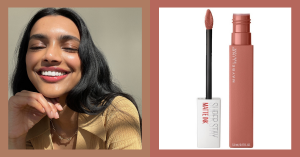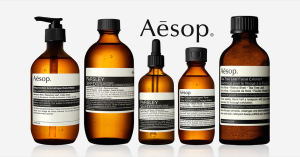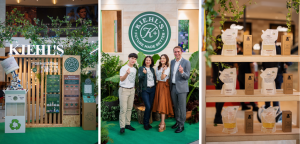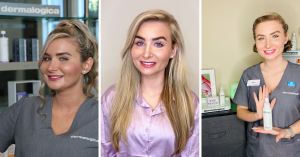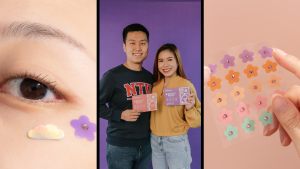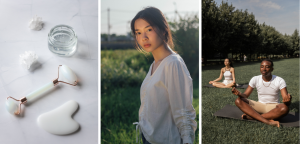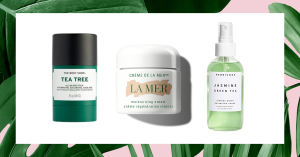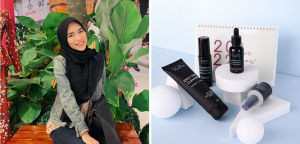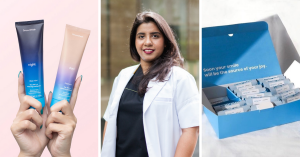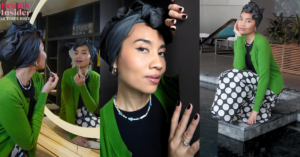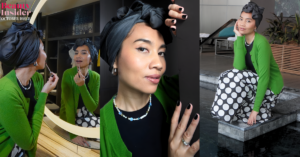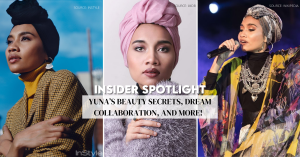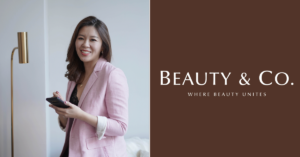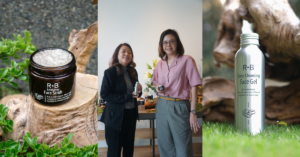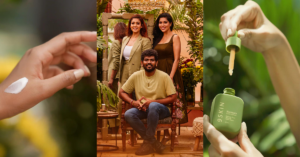#Insider Spotlight
Kristina Rodulfo Spills The Tea About Acne Portrayal In The Media and How It Needs To Change
“Young people face a really difficult time right now, where they’re constantly fed perfected imagery on social media apps in...
By: Farah Khan / July 14, 2022
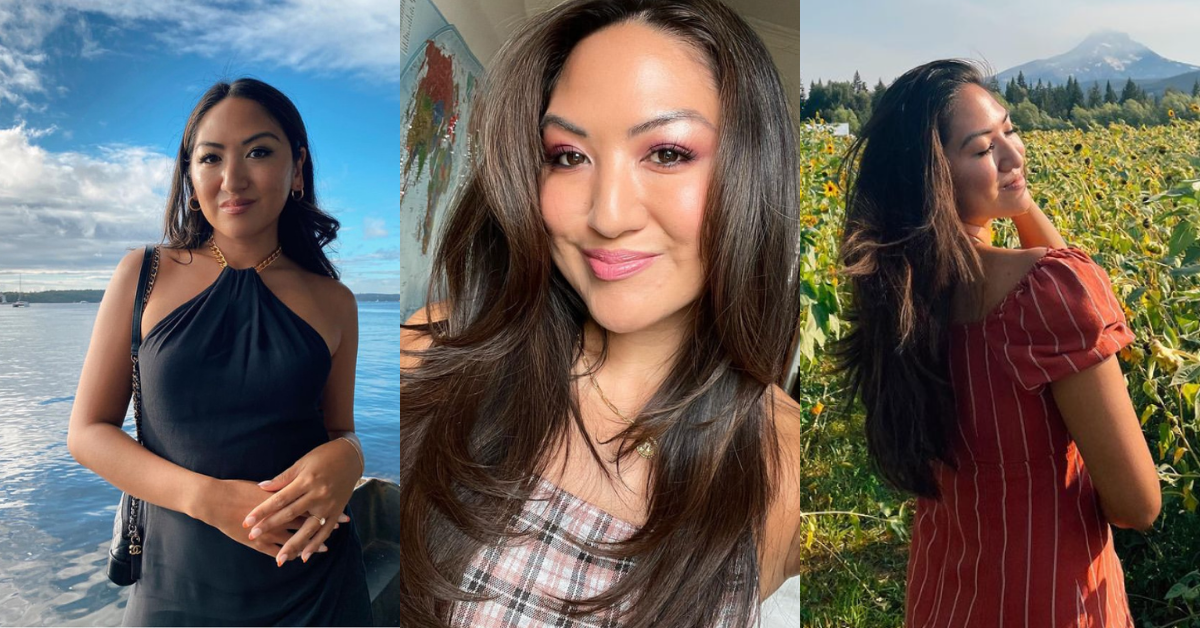
Let’s be honest, the media, especially today, plays a huge role in how we view ourselves and how we determine the way we are ”flawed”. Touched up, poreless, glass, blemish free skin, are images we could not escape. It’s in every commercial, every beauty shot, and on the profiles of your favourite beauty influencers and magazines. It’s 2022, shouldn’t that change? As much as these images are pleasing to the eyes, they do not portray the truth.
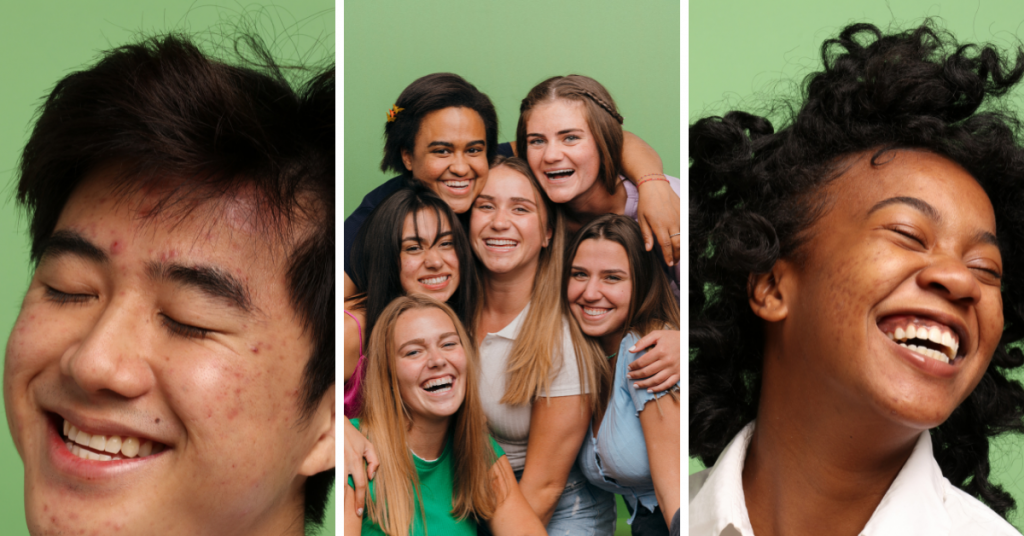
Clear Start by Dermalogica took the first step and used their position in the skincare industry to show us what real skin looks like in their Acne Awareness Month campaign, #FkAcneCensorship, which was honestly, REFRESHING. Joining Clear Start by Dermalogica in this campaign, former beauty director at Women’s Health and ELLE Magazine, was Kristina Rodulfo who spoke about her thoughts on the media portrayal of acne and ”perfect” skin. Inspired by her words, we had to speak to Kristina more about her knowledge about the images and portrayal by the media to both educate ourselves and our beloved readers. Hence, here we are. To read our interview with Kristina Rodulfo, keep scrolling!
Prepare to get inspired (we were!) and join our journey for a more transparent portrayal of REAL SKIN.
Interview with Kristina Rudolfo
Who is Kristina Rodulfo?
I’m Kristina Rodulfo, a beauty expert and content creator who was previously a magazine Beauty Director. I worked for over a decade as a magazine editor at US publications like ELLE, Women’s Health, InStyle, POPSUGAR, and more. In 2021, I took the leap to be my own boss and now work as a consultant for beauty brands and creator full-time. I bring my journalistic eye and reporting experience to the table, sharing insider tips about celebrity beauty, product reviews, beauty services, tutorials, and more.
Outside of work, I grew up in New York City as a proud daughter of Filipino immigrants. It’s my mission to make the beauty and media industries more inclusive, and I aim to always reflect that in my work as a creator, writer, speaker, and consultant. As for more “fun facts”: In January I put all my stuff in storage to travel full-time. I spent two months living in Australia, I’m traveling around Europe for summer – all while planning a destination wedding in Hawaii!
What made you first interested in skincare and what about skincare intrigues you the most?
I started dealing with acne when I was 13 years old. It was difficult, especially at such a young age when your self-esteem is vulnerable, to deal with breakouts across my face. My first foray into skincare was actually using the 3-step system from Proactiv, which I learned about from countless commercials on TV growing up. From there, I continued seeing dermatologists to treat my skin with prescription products.
When I entered the publishing industry, I was surrounded by so many knowledgeable reporters trying the newest innovations in the beauty industry and felt inspired to do the same. I learned so much from reporting and interviewing derms, estheticians, plastic surgeons, cosmetic formulators, researchers, and more! What intrigues me most about skincare is the science behind it (I love geeking out over active ingredients, beauty tech tools, etc.) and the major impact it can have on someone’s confidence.
How do you feel about being a part of the speaker panel for the Clear Start by Dermalogica virtual junket?

It was an amazing event with such knowledgeable speakers! I loved how interactive the audience was and the energy I could feel from everyone being so enthusiastic not only about skincare, but about embracing real–not filtered–skin. I tuned in from Paris, so it was 3am my time when we got started so that was a little crazy, but definitely worth it for the enlightening conversation we had about acne–a topic I’m so passionate about.
What would you say is the most important role of the media in regards to reporting on acne? What is their biggest fault at the moment when doing so?
Editors, writers, photographers, everyone working in media has a responsibility to put forward imagery that doesn’t perpetuate impossible standards of beauty. When you’re casting a model for a photo shoot, if they don’t have super perfect skin, don’t write them off. If you are someone editing a photo, don’t take out every single blemish and airbrush the skin. This can really help shift the conversation and help people change how they feel about their skin. It’s okay to have pores, to have cysts…it’s okay to show that!
Being mindful about words is also important – for example beauty writers, myself included, will often complement a product by saying it gives you “flawless” or “filtered” or “perfect” skin. These inadvertently make people feel bad about the skin they have.
What is a misconception you had about skincare?
The biggest one I had was probably that you could “scrub” acne away. I used so many harsh exfoliators that did more harm than good while I was early in my skincare journey. I also used to think that stripping my skin of all oil was the way to get rid of acne, when in reality, that only triggers more excess sebum production! Now I embrace my oily/combination skin and know how to cater to it.
Most ads and imagery in the media perpetuate skin as untextured, acne-free, and evenly toned. While in fact, it does not reflect common skin conditions. In your opinion, how do acne censorship impact teens and their perception of beauty?
Young people face a really difficult time right now, where they’re constantly fed perfected imagery on social media apps in a constant stream. It shapes not only their perception of beauty, but their perceptions of themselves. It’s impossible to escape, and the absence of acne across media reinforces the idea that only clear skin is beautiful. That can be really damaging for someone who is struggling with their skin! If we normalized seeing cysts, texture, and pores in media, it would do wonders to help people feel more seen and less ashamed of their skin. It would help people separate their self-worth from how clear their skin is.
Thankfully, I’ve noticed that younger skincare consumers are so much more comfortable going unfiltered. You go on TikTok and people have no makeup, they have breakouts, they’re just themselves and not letting that stop them. They’re shifting attitudes to start embracing skin as it is, and hopefully that’s helping send a message that your happiness doesn’t hinge on how your skin looks.
The common skincare advice when it comes to acne is not to poke or pinch them. However, many skin specialists during facials would actually poke them to clear them out. Can we really not do it or is there a certain method necessary when poking pimples?
I would leave it to the experts, like a dermatologist or esthetician to do professional extractions. Pinching or poking a breakout can cause additional inflammation that could trigger hyperpigmentation–and that takes forever to clear up! Keep your hands off your breakouts. If you MUST, whiteheads ready to pop can be squeezed using the ends of clean Q tips (not your fingers!). Apply a hydrocolloid patch immediately to help heal it.
What is your personal experience with acne, and how did you deal with it? Did the media and imagery you saw impacted your journey in any way?
As I mentioned above, I’ve dealt with acne since I was a teenager, and throughout my 20s. I would say its worst was when I was 24 and dealing with painful, cystic acne all over my chin and cheeks. It was especially difficult because it was my job as a beauty editor to report on skincare, so I felt a bit of an imposter writing about how to get clear skin when mine was anything but. It was a difficult time for me, and there were days I felt like I couldn’t even go out. I’d say social media definitely contributed to that, so much of the beauty industry is very visual and I’d see so many influencers and peers with acne-free skin, so I felt really isolated dealing with mine.
After seeing a dermatologist and following a regimen, my skin cleared up in 6 months. While I still get breakouts here and there, I’m not afraid to show my skin with pimples–even as a beauty content creator. I really try to avoid filters and show my skin, even if there are zits, dark spots, acne scars, etc. I think being exposed to what real skin looks like on your feeds makes a huge difference.
What is the best or most fascinating skincare finding that you have discovered?
People don’t realize just how connected our mental health is to our skin. Stress is a major trigger for nearly every skin concern you can imagine (acne, signs of aging), so if you are in a state of stress because you are experience a difficult time in your life, it can worsen flare-ups in your skin. That was one of my most fascinating learnings, and it really made me embrace a more holistic approach to skincare: It’s not just about applying topical products on your face, but also doing the inner work to be happy and peaceful that improves your skin.

